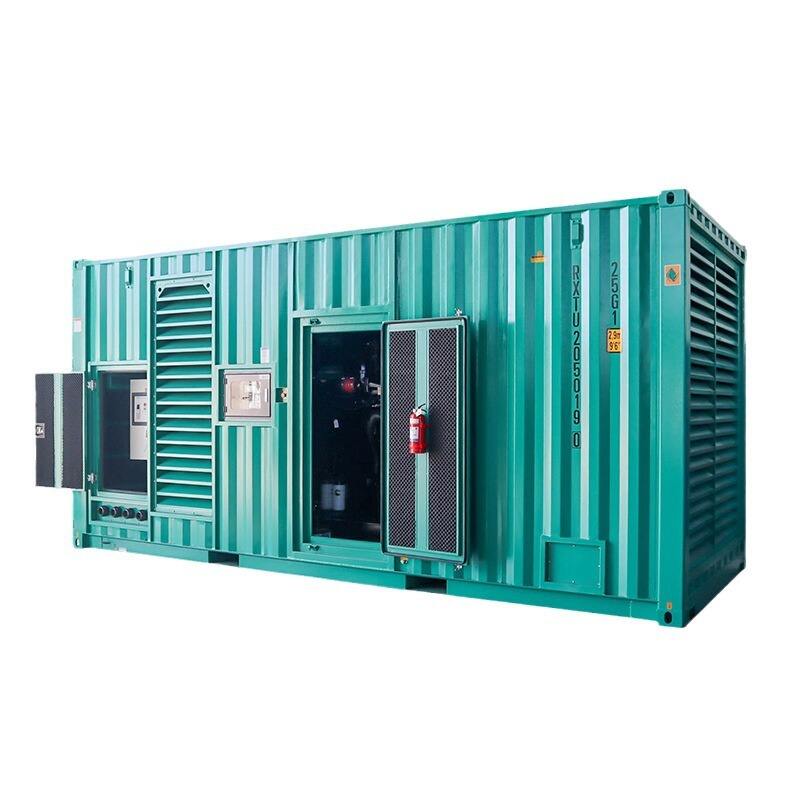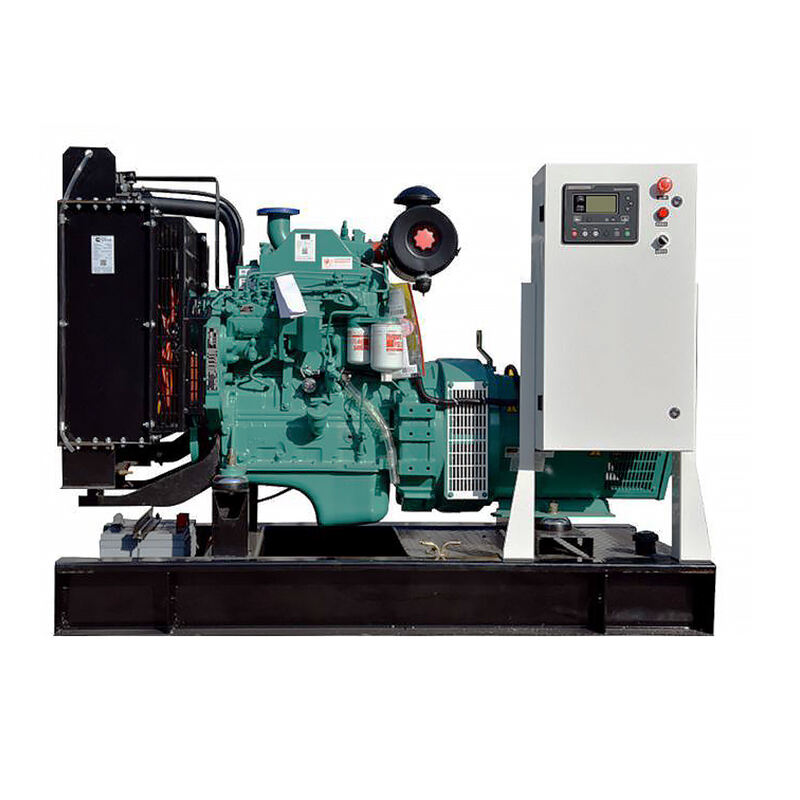Дизелдик генераторлордун иштөөсүндө отун сапатынын маанилүү ролү
Отун сапаты дизелдик генератордун иштөөсү үчүн каншалык маанилүү экенин билгенде, анын таасирине таң каласыз. Мүмкүн болушунча жогорку сапаттагы отун жакшы жануу эффективдүүлүгүнө жол берет, ал эми бул генератордун иштөө мүмкүнчүлүгүн жана убакыттын узактыгын күч өндүрүшү боюнча таасир этет. Мисалы, жогорку цетан рейтингине ээ отундар туруктуу ионизаторлоо жана жанууга жол берет, натыйжада жалпы иштөө мүмкүнчүлүгү жакшырлат. Ошондой эле, сапаттуу отун менен көбүрөөк күч чыгымдалса болот, изилдөөлөрдүн көпчүлүгү сапаттуу отун генератордун узак убакыт пайдаланууга мүмкүнчүлүк берерин, каржы сактоого жардам берерин көрсөттү. Демек, сапаттуу дизелдик отунга инвестиция көмүртектүү энергия генераторлорунун эффективдүүлүгү жана сенсиздиги үчүн маанилүү.
Таза отунду загрязнение төмөндөтүү боюнча изилдөөлөр экологияны коргоо жана узак мүддөттүү экологиялык пайдаланууга жетелейт. Эң сапаттуу отундар аба чыгышын тазалоо үчүн бөлчөктүү материяны жана азот оксиддерин (NOx) эпки кемитет жана катуу экологиялык нормаларга ылайык болот. АКШнын Экологияны коргоо агенттигинин (EPA) сыноолору аркылуу отундарды жакшылоо дизелдик генератордордун чыгарылышын кемитүүгө боло тургандыгын көрсөткөн. Ошол эле талаптар тийиштүү стандарттарга ылайык келүү үчүн компаниялардын экологиялык жоопкерчиликке даяр болушуна тийиштүү. Бул жактан алганда, таза отун - дикий жаныбарлар ден соолугу үчүн да, талаптарга ылайык келүү үчүн да жеңиш.
Жогорку сапаттагы отунга инвестиция киргизүү дизелдик генератордун иштөө мүмкүнчүлүктөрүн арттырып, техникалык кызмат көрсөтүү зарылдыгын азайтат жана экологиялык стандарттарга ылайык келүүнү камсыз кылат, оргоно эффективдүү ресурс менеджментинин негизги бөлүгүн курайт.
Дизелдик отундагы жөнгө салуучу кирлер жана алардын вредитектер
Суу ластануу: Микробдук өсүм жана коррозия
«Бул отундагы суу микроорганизмдердин өсүшүнө жана жалпы коррозияга тийгизген таасиринен дыйканчылык маселеси бар аймактарда дизелдик техниканын колдонулушу үчүн да мүмкүнчүлүк берет. Акыр-аягы, отун системасындагы суу шарттарды микробиологиялык булгундануу же чамалдуулук пайда болт алгандай кылат, бул генератордун эффективдүүлүгүн төмөндөтөт. Бул чамал отун сызыктарынын, сүзгүчтөрдүн ичине түшүп, кубатты кемитип, техникалык кызмат көрсөтүүнүн чыгымдарын көбөйтөт. Катастрофалык иштөөнүн токтошусу Бул эмгекте документке түшүрүлгөн учурлар маал-мезгилге жараша суу менен булгундануудан улам болгон катастрофалык иштөөнүн токтошусуна алып келди жана бул маселени чечүү зарылчылыгы эстен чыгарылбашы керек. Дизелдик отунду сактоо жүйөсүндө суу менен булгунданууну болтурбоо үчүн сактоочу резервуар системаларын текшериңиз жана жөндеңиз, чагылдыргыч дем алуучу заттарды колдонуңуз жана отун кыска убакыт ичинде жансыз калбай тургандай оң жетиштүү сактоо имканийин камсыз кылыңыз.»
Бөлүндүлөр: Тосулуп калган фильтрлер менен инжекторлор
Дизелдин бөлүндүлөрү бир катар көйгөйлөргө алып келет, атап айтканда, от жактыруучу фильтрлер менен инжекторлордун тосулушу, мотордун иштөөсүнө терс таасир этет. Бөлүндүлөрдүн жыйналышы от жактыруунун агымын чектейт, эффективдүүлүктү төмөндөтөт жана ылайыксыз чыгымдарды көбөйтөт. От жактыруунун бузулушу мотордун жалпы ылайыксыз чыгымдарынын 70% түзө тургандыгы далилденген; ошондуктан бөлүндүлөрдүн бузулуусунун финансдык таасири айкын. Бул тулкуларга каршы турганы үчүн, алдын ала фильтрлерди колдонуу керек жана сервисдик интервалдар белгиленүү керек. Бул дизел генераторунун саламат иштөөсүн гана эмес, бөлүктөрдүн зыян көрбөшүн да камсыз кылат.
Төмөндөгөн от жактыруу: Чамалдын пайда болушу менен мотордун күч түшүрүшү
Ошол эле учурда отундун бул түрдүүлүгү кыймылдаткычтын иштөө мезгилинде суу сактоо боюнча кошумча аракеттерге алып келген жалпы маселе болуп саналат. Көмүртек катмарынын топтолушу отундун агымын блоктоп, жануу эффективдүүлүгүн төмөндөтөт, күч-аракетти азайтат жана кыймылдаткычтын зыян көрүшүнө алып келет. Бир нече иликтөөлөр отундун түрдүүлөнүш окуяларынын саны регионалдык климатка байланыштуу экенин көрсөттү, демек, аларды каршы алуу үчүн регионго тийешелүү стратегиялар керек экенин билдирет. Отун качан качан чекиттүү текшерүү жүргүзүү жана антиоксиданттар менен стабилизатордор сыяктуу превентивдүү сактоо чараларын колдонуу менен отундун түрдүүлөнүш шансын төмөндөтүү мүмкүн болот.
Төмөн сапаттуу отундан улам кыймылдаткычтын узак мөөрдүү зыян көрүшү
Көмүртек депозиттери жана жануу эффективдүүлүгүнүн төмөндөшү
(Себеби: Төмөнкү сапаттагы отун жану камерасында углерод чөктүрүшүн түзүүгө бейимдүү, ал эффективдүүлүктү 15% чейин төмөндөтө алат.) Бул ачык көрүнгөн эффективсиздик отундун артык чыгымдалуусуна жана жаман дизелдин күчүнө алып келет. [4] [10] Эксперттер бул минералдарды чыгарып тазалоо боюнча интервалдарды сактоону сунуш кылат жана системада кыйла тазалоо эквенти тийиштүү элементтердин чыгымын көбөйтө тургандыгын эскертет. Лучшот жану эффективдүүлүгүн камсыз кылуу үчүн отун сапатын көзөмөлдөө маанилүү. Регулярдуу отун диагностикасы жакшы сапаттагы отун колдонуу, узак мөөнөттө чөккүн түзүлүшүн алдын алуу жана өнүмдүлүктү жакшылоого жардам берет.
Отун жикчилеринин тозушу жана тайыздануу
төмөн сапаттуу отун жанар-жағардыны бүтүрүүчүлөрдүн иштөө мөөнөтүн кыскартат, ал эми бул кыйынчылыктар менен алып жүрүүнүн чыгымдарын көбөйтөт. Бир изилдөөнүн натыйжасында начар отун жаңы бүтүрүүчүлөргө чыгымдарды иштетүү бюджетин жеп берүү мүмкүн экенин көрсөттү! Бүтүрүүчүнү алмаштыруу убактысы отундун сапатына да байланыштуу жана төмөн сапат үчүн ал эптелген шарттар боюнча алмаштырылыши керек. Отун стандарттарынын негизинде жүргүзүлгөн текшерүүлөр бул ыктымал зарарларды болтурбоо үчүн алдын ала каралган учурда бүтүрүүчүнүн иштөө мөөнөтүн узартып, күтүлбөгөн чыгымдардан сактоого мүмкүнчүлүк берет.
Критикалык мотор бөлүктөрүндө коррозия
Арзан бензинде болгон коррозиялык элементтер иштеп турганда двигательдин негизги бөлүктөрүн жеп чыгат, ал эми дизелдик генератор курамынын узактыгына терс таасир берет. ТАЗА, ЖОГОРКУ САПАТТУУ БЕНЗИН = ДВИГАТЕЛЬ БӨЛҮКТӨРҮНҮН УЗАК МӨӨРҮ Илимий изилдөөлөр бензинге двигательге куюлган зат менен анын бөлүктөрүнүн узактыгынын ортосундагы байланышты так билдирет, ошондуктан коррозияга каршы туруктуу, жогорку сапаттуу отунду колдонуу абдан маанилуу. Коррозияга каршы коргоо үчүн, отун кошулмаларынын колдонушу маселени чечеби мүмкүн. Бул кошулмалардын максаты отундо болушу мүмкүн болгон коррозиялык материалдарды жок кылуу, ошондо двигатель бөлүктөрүн коргоп турган коргоочу кабык пайда болот, ал эми турактуу зыяндан сакталат. Отун сапатын систематикалык көзөмөлдөп жана талдап турганыңыз отун кошулмаларын дурус тандаш жана двигательдин узактыгын камсыз кылат.
Отун бүтүндүгүн камсыз кылуу боюнча чаралар
ДУРУС ОТУН САКТАШ ЖОЛДОРУ
Жакшы отун сактоо системасы таза жануучу двигатель менен кирли, тосулган система ортосундагы айырманы жасай алат. Дүүлөктүү сактоо усулдары дизел отуунун тазалыгын жана эффективдүүлүгүн сактоого жардам берет. Идеал отун сактоо үчүн: таза отун сактоо бактарын колдонуу, регулярдуу текшерүү интервалдарын жүргүзүү жана туура сактоо жабдыктарын камсыз кылуу. Бул практикалар отун сапатын коргоо максатында түзүлгөн ASTM стандарттары сыяктуу тармактык стандартдарга ылайык келет. Ошондой эле, EPA сыяктуу бийликтердин отунду коопсуз сактоо жана колдонуу боюнча талаптарын аткаруу отунду келечекте бузулуулардан азат кылат.

Узактыкка отун кошулмаларын колдонуу
Дизелдик отун космолору таза, турактуу жана функционалдуу отунду модерн дизелдик моторлорго камсыз кылуу максатында кайта иштетүү заводдорунун аракеттеринин маанилүү бөлүгү болуп саналат. Сакталган отундун эффективдүүлүгүн жана убакыт мөөнөтүн белгилүү космондор кошкон сайын жакшыртууга болот. Жогорку сапаттагы космодордун регулярдык пайдаланылышы визуалдуу эффективдүүлүктүн артышын камсыз кылат. Стабилизаторлор жана бактерициддик заттар бактерияларды басып турат, форсунккаларды тазалайт жана мотордун жалпы техникалык абалын жакшыртат. Эгерде отундун шарттары талап кылса, сиз дизелдин ар бир катышына тандоо менен кетан индексин көтөрүүчүлөр же майлаштыруучулөр сыяктуу космо компоненттерин колдонуш керек.
Регулярдуу отун текшерүү жана фильтрациялоо
Топливоно чагын тазалоо жана таза күйүнө карата текшерүү лабораториялык анализ жана дареге ылайык сыноо сыяктуу стандарттык тесттик ыкмаларды колдонуу менен топливо сапатын башкаруу, цетан санын жана күкүрттүн ээлик кылуусун аныктоо аркылуу загрязнениелерди башкарууга жана сапатты камсыз кылууга жардам берет. Продвинут фильтрация системалары да дизелдик генератордордун иштөө мүнөзүн жакшылоого жана техникалык куралдардын узак убакыт пайдалануусуна жардам берүү үчүн бул бөлүндөрдү жана намдуулукту төмөндөтүү үчүн колдонулат. Чыгымдарды тежөө – Топливо сапатын улантып көзөмөлдөө техникалык кызмат көрсөтүү чыгымдарын төмөндөтөт, ал эми топливо суу жана бактериялардан ары болуп турат.
Жогорку сапаттагы топливо экономикалык жана экологиялык артыкчылыктары
Колдонуу чыгымдарынын төмөндөлүшү жана ондоо иштеринин азаюу
Дизелдик генераторлор үчүн жогорку сапаттуу отун сатып алуу чечими - бул ремонт жана техникалык кызмат көрсөтүүгө кеткен чыгымдарды узак мөөнөттө тежөөгө мүмкүнчүлүк берген инвестициялык чечим. Сапаттуу отун двигательдин иштөө мүмкүнчүлүгүн арттырат жана анын техникалык абалына зыян келтирбейт. Сан менен далилденген Сан жүзүндө, жакшы отун менен иштеген системаларда техникалык кызмат көрсөтүүгө байланышкан убакыт жоголтуулар аз болот, бул ансыз эле кыймылдоолор азаят, ал эми иштетүү убактысы көбөйтүлөт. Отун классы менен техникалык кызмат көрсөтүүгө бөлүнгөн каражат арасындагы бул катыш дизелдик генераторлорду колдонууға тиешелүү компаниялардын күн сайынкы ишмердүүлүгүнө кеткен чыгымдарды төмөндөтүү үчүн кайталанып турган ремонттордун азаюуунда түз эле чагылдырылат.
Чыгаруу стандарттарын жана ылайыктуулук максаттарын аткаруу
Бул соң келгенде, сиздин ишкананын чиста аба менен камсыздоого жана табигый ресурстарды коргоо боюнча нормаларга ылайык келүү жана маанилүү максаттарды ишке ашырууга мүмкүнчүлүк берет. Табигый чөйрөнү коргоо үчүн катуу эмиссиялык стандартдар киргизилди жана отун сапаты бул жакта рол ойнойт. Эгер отунду пайдалануу табигый чөйрөгө тийгизе турган терс таасирин азайтса, убакыт өткөн сайын компаниянын имиджине пайдалуу таасир көрсөтөт. Мисалы, бир нече компания отун сапаты боюнча программаларда жана табигый чөйрөнү коргоо боюнча учак операцияларына даяр болушу менен таанылды. Жогорку сапаттагы отунду колдонуу ишканалардын өнүгүшүнө жардам берип, алардын иштөөсүн жеңилдетет.
ККБ
Дизель генераторлорунун иштөөчүлүгү үчүн отун сапаты неге маанилүү?
Жогорку сапаттагы отун генератордун электр энергиясын чыгаруу жана узак мерзимдүү иштөө мүмкүнчүлүгүнө түздөн-түз таасир эткен жакшы жануу эффективдүүлүгүн камсыз кылат. Бул эмиссияны жана техникалык кызмат көрсөтүүнүн чыгымдарын да азайтат.
Дизель отунундагы жыш кездешкен загрязнителдер кандай?
Кенен таралган киргизүүчүлөрдүн ичинде микробдор өсүмдүктөр жана коррозияны келтирип чыгаруучу суу, сүзгүчтөрдү бетап кылып турган бөлүкчөлөр жана шлам пайда кылууга алып келген отундун түрү болот.
Төмөн сапаттуу отун дизел генераторуна кантип зыян келтиреди?
Төмөн сапаттуу отун карбондук калдыктардын пайда болушуна, отун распылительинин натура жана коррозиясынын артышина жана мотордун бөлүктөрүндө коррозияга алып келет, ал эми эффективдүүлүк жана узак убакыт пайдаланууга терс таасир этет.
Жогорку сапаттагы дизел отунун колдонуунун артыкчылыктары кандай?
Артыкчылыктары төмөн сапаттуу ремонттор менен камсыздоо, эң кемчиликтерди жөнөтүү, чыгаруу стандарттарына ылайык келүү жана жогорку эффективдүү жана жоопкерчилик тууралуу операцияларды камсыздоого жардам берет.
Сактоо жолу менен отундун бүтүндүгүн кантип камсыздаш керек?
Туура сактоо системасы, отун кошулмаларын колдонуу жана регулярдуу сыноо жана фильтрация отундун сапатын сактоого жана киргизүүнүн алдын алууга жардам берет.
Көрсөтмө
- Дизелдик генераторлордун иштөөсүндө отун сапатынын маанилүү ролү
- Дизелдик отундагы жөнгө салуучу кирлер жана алардын вредитектер
- Төмөн сапаттуу отундан улам кыймылдаткычтын узак мөөрдүү зыян көрүшү
- Отун бүтүндүгүн камсыз кылуу боюнча чаралар
- Жогорку сапаттагы топливо экономикалык жана экологиялык артыкчылыктары
-
ККБ
- Дизель генераторлорунун иштөөчүлүгү үчүн отун сапаты неге маанилүү?
- Дизель отунундагы жыш кездешкен загрязнителдер кандай?
- Төмөн сапаттуу отун дизел генераторуна кантип зыян келтиреди?
- Жогорку сапаттагы дизел отунун колдонуунун артыкчылыктары кандай?
- Сактоо жолу менен отундун бүтүндүгүн кантип камсыздаш керек?

